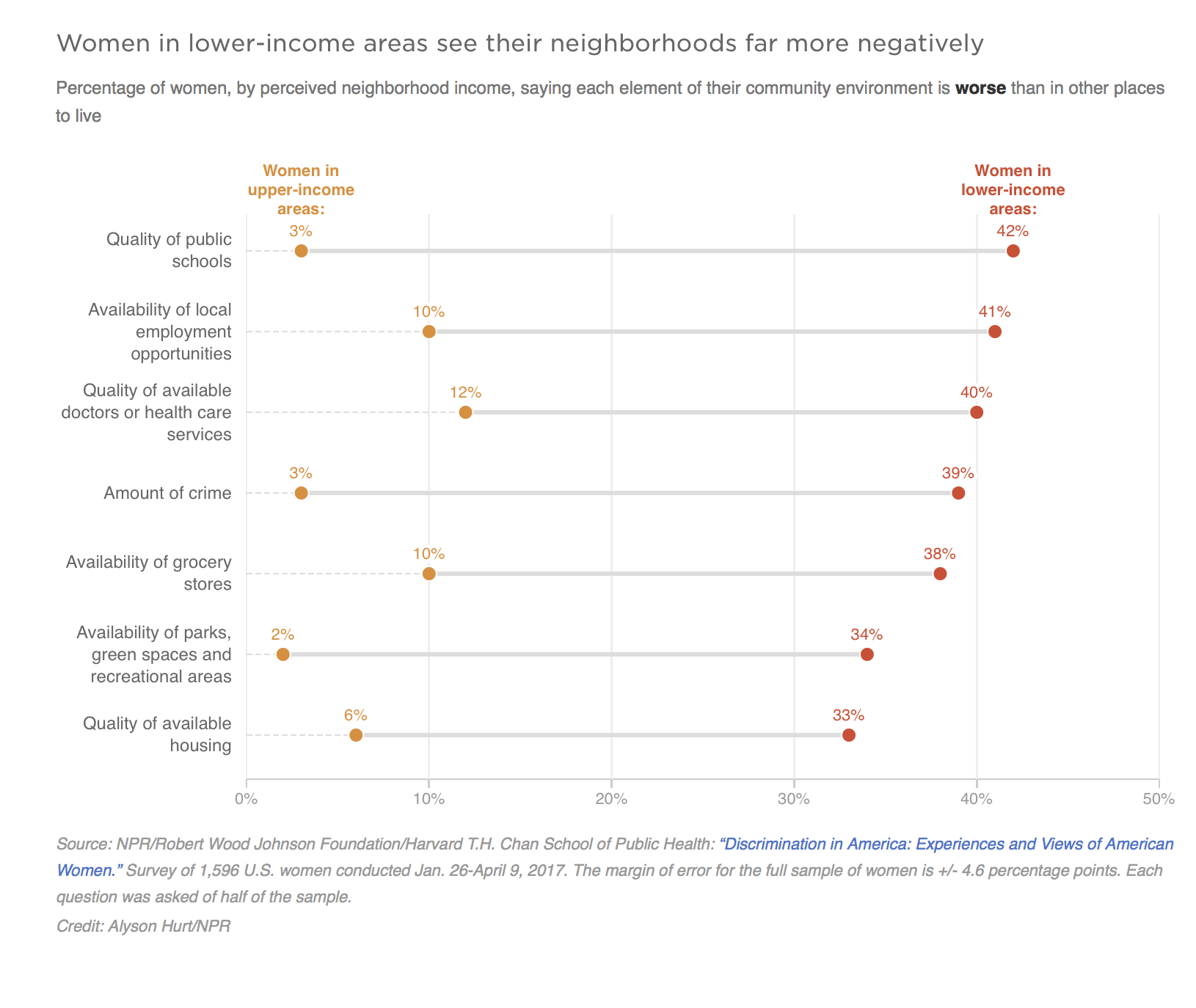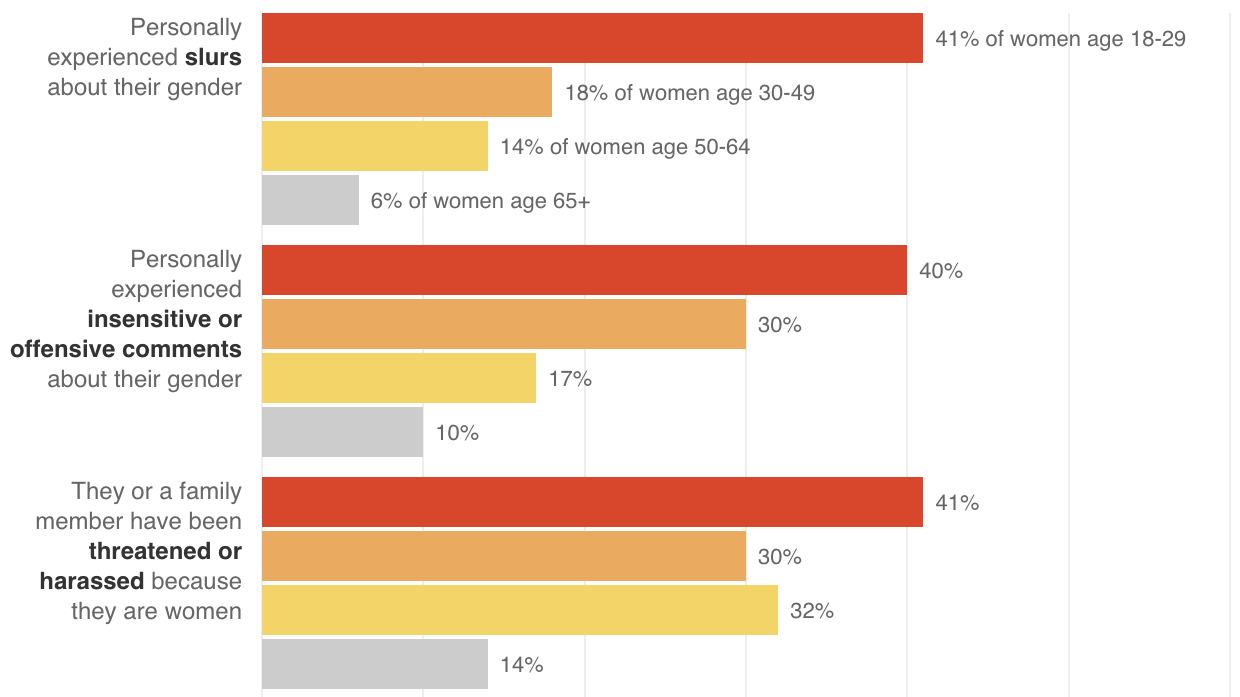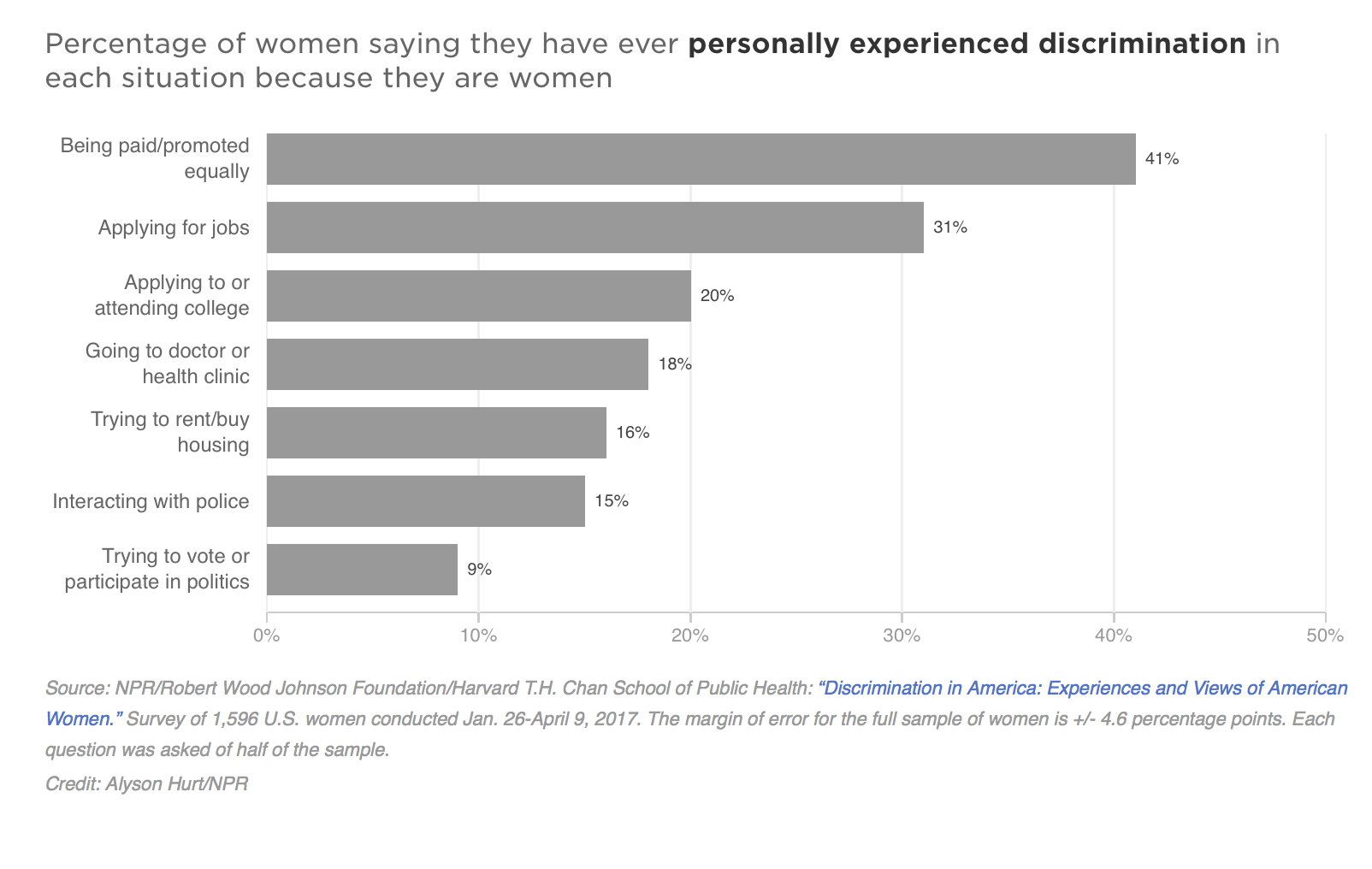
On nearly every measure, Native American women had the highest levels of discrimination based on gender. In our series, "You, Me and Them: Experiencing Discrimination in America," we have highlighted several of these situations, including unfair treatment by the courts in majority-Native areas.
NPR will livestream an expert panel discussion on Native American issues at noon ET on Tuesday.
One of the patterns that emerged from the poll and our subsequent reporting is a gulf between high- and low-income areas when it comes to experiences of discrimination. This gap is also apparent in the gender data crunched by our Harvard team. The graph below illustrates the stark differences based on income when it comes to several everyday experiences people have in their own neighborhoods.

A snapshot in time
Our poll — which was fielded from late January to early April — before this fall's intense news coverage of sexual harassment — also captures what women were feeling and experiencing before the recent scandals.
We found that 37 percent of women overall reported they or a female family member had been sexually harassed because they are women at some point in their lives. But there was a wide range of responses based on age, with 60 percent of those 18 to 29 years old saying they or a female family member had been sexually harassed because they are women, versus 17 percent of women 65 and over.
"Our survey highlights the extraordinary level of personal experiences of harassment facing women today, as reflected in the news," says Robert Blendon, co-director of the poll and professor of health policy and political analysis at the Harvard Chan School. "These national conversations may have affected how people viewed or responded to their own experiences in our survey, or their willingness to disclose these experiences."

Indeed, a poll released last week by Quinnipiac University, asking specifically about sexual assault, suggests women may be more comfortable reporting such experiences now that more women are coming forward and revealing past abuse. (Our poll differs from Quinnipiac in that we asked a broader question: "Do you believe that you or someone in your family who is also a female has experience sexual harassment because you or they are female?")
The survey from NPR, the Robert Wood Johnson Foundation and the Harvard Chan School was conducted from Jan. 26 to April 9, 2017, among a nationally representative probability-based telephone (cell and landline) sample of 1,596 women. The margin of error for total female respondents is 4.6 percentage points at the 95 percent confidence interval. Complete methodological information is in the full poll report.




